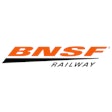
The National Grain and Feed Association (NGFA) submitted comments to the Surface Transportation Board (STB) on January 14 encouraging the board to finalize its rules for a streamlined “final offer rate review” process that would provide rail customers with a more workable approach to challenge unreasonable freight rail rates.
“The NGFA has been an enthusiastic supporter of the board’s development and consideration of the Final Offer Rate Review (FORR) proposed regulations,” the comments noted.
NGFA-member companies have experienced unreasonably high rail rates with the rapid consolidation of the North American freight rail marketplace and the implementation of new operating models by several Class I railroads. FORR would provide an avenue for agricultural shippers to challenge rail rates in a timely and cost-effective manner.
In its proposed rule published November 12, 2021, the board included several suggestions submitted by NGFA to improve FORR and its effectiveness for agricultural shippers.
However, STB also proposed delaying FORR until a decision is reached on a separate proposal to establish a voluntary “Small Case Arbitration Program” to exist alongside the Board’s current voluntary arbitration program.
“The board should not further delay the issuance of final FORR regulations,” NGFA noted. The Association implored STB to finalize FORR either before or at the same time as it issues any final rules for the voluntary Small Case Arbitration Program, which would apply to rate disputes that involve rates for regulated commodities not subject to a rail transportation contract.
In separate comments submitted Jan. 14, NGFA made the following recommendations to the proposed regulations for the Small Case Arbitration Program:
- FORR exemptions: As the arbitration program proposal is currently written, Class I railroads may be granted a waiver from FORR for five years or more without adequate evaluation. “This is not acceptable to NGFA’s members,” NGFA noted in its comments, suggesting an initial two- or three-year term for the exemption coupled with an evaluation.
- Transparency: NGFA recommended that the final rules contain a requirement that arbitration decisions under the program should include publication on the Board’s website of case details, including names of the parties involved, the rationale used by arbitrators in reaching their decision and the award. “Each of these public features enhance accountability and integrity of the process,” NGFA noted.
- Rail service data: “The reason that some NGFA members do not pursue formal rate relief or otherwise challenge rail rates before this Board is because they fear retaliation by their serving railroad, on which they are entirely dependent for rail service,” NGFA noted. To encourage participation, the NGFA encouraged STB to incorporate the rail service data it collects from the Class I railroads into the Small Case Arbitration Program.
In its conclusion, NGFA reiterated “that its suggestions on how to improve proposed rules modifying the Board’s arbitration procedures are accompanied by the important caveat that the Board’s efforts in this proceeding neither detract from nor delay the Board’s development and issuance of a final rule implementing FORR.”


















